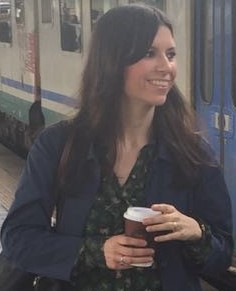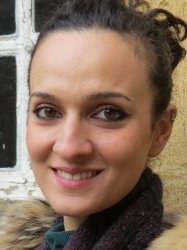Studying at the University of Verona
Here you can find information on the organisational aspects of the Programme, lecture timetables, learning activities and useful contact details for your time at the University, from enrolment to graduation.
Academic calendar
The academic calendar shows the deadlines and scheduled events that are relevant to students, teaching and technical-administrative staff of the University. Public holidays and University closures are also indicated. The academic year normally begins on 1 October each year and ends on 30 September of the following year.
Course calendar
The Academic Calendar sets out the degree programme lecture and exam timetables, as well as the relevant university closure dates..
| Period | From | To |
|---|---|---|
| primo semestre (lauree magistrali) | Oct 4, 2021 | Dec 17, 2021 |
| secondo semestre (lauree magistrali) | Feb 21, 2022 | May 13, 2022 |
| Session | From | To |
|---|---|---|
| sessione invernale | Jan 10, 2022 | Feb 18, 2022 |
| sessione estiva | May 23, 2022 | Jul 8, 2022 |
| sessione autunnale | Aug 22, 2022 | Sep 23, 2022 |
| Session | From | To |
|---|---|---|
| sessione autunnale (validità a.a. 2020/2021) | Dec 6, 2021 | Dec 10, 2021 |
| sessione invernale (validità a.a. 2020/2021) | Apr 6, 2022 | Apr 8, 2022 |
| sessione estiva (validità a.a. 2021/2022) | Sep 5, 2022 | Sep 6, 2022 |
Exam calendar
Exam dates and rounds are managed by the relevant Economics Teaching and Student Services Unit.
To view all the exam sessions available, please use the Exam dashboard on ESSE3.
If you forgot your login details or have problems logging in, please contact the relevant IT HelpDesk, or check the login details recovery web page.
Should you have any doubts or questions, please check the Enrollment FAQs
Academic staff
 laura.chiaramonte@univr.it
laura.chiaramonte@univr.it
 mauro.cortese@univr.it
mauro.cortese@univr.it
 cecilia.mancini@univr.it
cecilia.mancini@univr.it

Santi Flavio
 flavio.santi@univr.it
flavio.santi@univr.it
 045 802 8239
045 802 8239

Vannucci Virginia
 virginia.vannucci@univr.it
virginia.vannucci@univr.it
Study Plan
The Study Plan includes all modules, teaching and learning activities that each student will need to undertake during their time at the University.
Please select your Study Plan based on your enrollment year.
1° Year
| Modules | Credits | TAF | SSD |
|---|
2° Year activated in the A.Y. 2022/2023
| Modules | Credits | TAF | SSD |
|---|
| Modules | Credits | TAF | SSD |
|---|
| Modules | Credits | TAF | SSD |
|---|
| Modules | Credits | TAF | SSD |
|---|
Legend | Type of training activity (TTA)
TAF (Type of Educational Activity) All courses and activities are classified into different types of educational activities, indicated by a letter.
Type D and Type F activities
Nei piani didattici di ciascun Corso di studio è previsto l’obbligo di conseguire un certo numero di crediti formativi mediante attività a scelta (chiamate anche "di tipologia D e F").
Oltre che in insegnamenti previsti nei piani didattici di altri corsi di studio e in certificazioni linguistiche o informatiche secondo quanto specificato nei regolamenti di ciascun corso, tali attività possono consistere anche in iniziative extracurriculari di contenuto vario, quali ad esempio la partecipazione a un seminario o a un ciclo di seminari, la frequenza di laboratori didattici, lo svolgimento di project work, stage aggiuntivo, eccetera.
Come per ogni altra attività a scelta, è necessario che anche queste non costituiscano un duplicato di conoscenze e competenze già acquisite dallo studente.
Quelle elencate in questa pagina sono le iniziative extracurriculari che sono state approvate dal Consiglio della Scuola di Economia e Management e quindi consentono a chi vi partecipa l'acquisizione dei CFU specificati, alle condizioni riportate nelle pagine di dettaglio di ciascuna iniziativa.
Si ricorda in proposito che:
- tutte queste iniziative richiedono, per l'acquisizione dei relativi CFU, il superamento di una prova di verifica delle competenze acquisite, secondo le indicazioni contenute nella sezione "Modalità d'esame" della singola attività;
- lo studente è tenuto a inserire nel proprio piano degli studi l'attività prescelta e a iscriversi all'appello appositamente creato per la verbalizzazione, la cui data viene stabilita dal docente di riferimento e pubblicata nella sezione "Modalità d'esame" della singola attività.
COMPETENZE TRASVERSALI
Scopri i percorsi formativi promossi dal Teaching and learning centre dell'Ateneo, destinati agli studenti iscritti ai corsi di laurea, volti alla promozione delle competenze trasversali: https://talc.univr.it/it/competenze-trasversali
ATTENZIONE: Per essere ammessi a sostenere una qualsiasi attività didattica, inlcuse quelle a scelta, è necessario essere iscritti all'anno di corso in cui essa viene offerta. Si raccomanda, pertanto, ai laureandi delle sessioni di dicembre e aprile di NON svolgere attività extracurriculari del nuovo anno accademico, cui loro non risultano iscritti, essendo tali sessioni di laurea con validità riferita all'anno accademico precedente. Quindi, per attività svolte in un anno accademico cui non si è iscritti, non si potrà dar luogo a riconoscimento di CFU.
| years | Modules | TAF | Teacher |
|---|---|---|---|
| 1° 2° | The fashion lab (1 ECTS) | D |
Caterina Fratea
(Coordinator)
|
| 1° 2° | The fashion lab (2 ECTS) | D |
Caterina Fratea
(Coordinator)
|
| 1° 2° | The fashion lab (3 ECTS) | D |
Caterina Fratea
(Coordinator)
|
| years | Modules | TAF | Teacher |
|---|---|---|---|
| 1° 2° | Marketing plan | D |
Virginia Vannucci
(Coordinator)
|
| years | Modules | TAF | Teacher |
|---|---|---|---|
| 1° 2° | Internationalization and Sustainability. Friends or Enemies? | D |
Angelo Zago
(Coordinator)
|
| 1° 2° | Internationalization and Sustainability. Friends or Enemies? | D |
Angelo Zago
(Coordinator)
|
| 1° 2° | Internationalization and Sustainability. Friends or Enemies? | D |
Angelo Zago
(Coordinator)
|
| 1° 2° | Data Analysis Laboratory with R (Verona) | D |
Marco Minozzo
(Coordinator)
|
| 1° 2° | Data Visualization Laboratory | D |
Marco Minozzo
(Coordinator)
|
| 1° 2° | Python Laboratory | D |
Marco Minozzo
(Coordinator)
|
| 1° 2° | Advanced Excel Laboratory (Verona) | D |
Marco Minozzo
(Coordinator)
|
| 1° 2° | Excel Laboratory (Verona) | D |
Marco Minozzo
(Coordinator)
|
| 1° 2° | Samsung Innovation Camp | D |
Marco Minozzo
(Coordinator)
|
| years | Modules | TAF | Teacher |
|---|---|---|---|
| 1° 2° | Business & Predictive Analytics for International Firms (with Excel Applications) - 2021/2022 | D |
Angelo Zago
(Coordinator)
|
| 1° 2° | What paradigms beyond the pandemic? Individual vs. Society, Private vs. Public | D |
Federico Brunetti
(Coordinator)
|
| 1° 2° | Elements of Financial Risk Management - 2021/2022 | D |
Claudio Zoli
(Coordinator)
|
| 1° 2° | Integrated Financial Planning | D |
Riccardo Stacchezzini
(Coordinator)
|
| years | Modules | TAF | Teacher |
|---|---|---|---|
| 1° 2° | The fashion lab (1 ECTS) | D |
Caterina Fratea
(Coordinator)
|
| 1° 2° | The fashion lab (2 ECTS) | D |
Caterina Fratea
(Coordinator)
|
| 1° 2° | The fashion lab (3 ECTS) | D |
Caterina Fratea
(Coordinator)
|
| years | Modules | TAF | Teacher |
|---|---|---|---|
| 1° 2° | La metodologia SEM applicata allo studio della relazione tra gestione del rischio e performance nelle PMI | D |
Cristina Florio
(Coordinator)
|
| 1° 2° | Laboratory on research methods for business | D |
Cristina Florio
(Coordinator)
|
| 1° 2° | Machine learning and quantum computing with some applications in mathematical finance | D |
Alessandro Gnoatto
(Coordinator)
|
| years | Modules | TAF | Teacher | |
|---|---|---|---|---|
| 1° | Programming in Matlab | D |
Marco Minozzo
(Coordinator)
|
|
| 1° 2° | How to Enter in a Foreign Market. Theory and Applications - 2021/2022 | D |
Angelo Zago
(Coordinator)
|
|
| 1° 2° | Introduction to Java programming | D |
Alessandro Gnoatto
(Coordinator)
|
|
| 1° 2° | Data Science Laboratory with SAP | D |
Marco Minozzo
(Coordinator)
|
|
| 1° 2° | Programming in SAS | D |
Marco Minozzo
(Coordinator)
|
|
Programming in Matlab (2021/2022)
Teaching code
4S010392
Teacher
Coordinator
Credits
3
Also offered in courses:
- Programming in Matlab of the course Bachelors' degree in Business Administration and Management
- Programming in Matlab of the course Bachelor's degree in Economics and Business
- Programming in Matlab of the course Bachelor's degree in Business Administration (Verona)
- Programming in Matlab of the course Bachelor's degree in Economics and Business (Verona)
- Programming in Matlab of the course Master’s degree in Marketing and Corporate Communication
- Programming in Matlab of the course Master’s degree in Business Administration and Corporate Law
- Programming in Matlab of the course Master’s degree in Economics and Data Analysis
- Programming in Matlab of the course Master's degree in Corporate governance and business administration
- Programming in Matlab of the course Bachelor's degree in Business Innovation and Economics
- Programming in Matlab of the course Bachelor's degree in Economics, Firms and International Markets
- Programming in Matlab of the course Bachelor's degree in Business Administration (Vicenza)
- Programming in Matlab of the course Bachelor's degree in Economics and Business (Vicenza)
- Programming in Matlab of the course Master’s degree in Management and business strategy
- Programming in Matlab of the course Master’s degree in International Economics and Business
Language
Italian
Scientific Disciplinary Sector (SSD)
NN - -
Period
Periodo generico dal Oct 1, 2021 al May 31, 2022.
Learning outcomes
The course "Programming in Matlab" is an optional "type f" activity, which allows to students to obtain 3 CFU, once a final examination is passed. In particular:
- The course is available only to students that are regularly enrolled to the academic year 2021/202.
- All CdL and CdLM students of the School of Economics and Management can register, in particular students of the Master’s degree in Economics and Data Analysis, and of the Master’s degree in Banking and Finance. In case of limitations to the total number of places available, requests for participation will be considered following the registration order, considering that priority will be given to CdLM students, in particular to students of the Master’s degree in Economics and Data Analysis, and of the Master’s degree in Banking and Finance.
- The lessons will be delivered online through Zoom meetings. All the lessons will be registered for later viewing.
- The course will take place in the second semester; there will be just one course.
- The course consists of 24 hours of exercise lessons and tutorial activities (plus 2 hours of final examination).
The calendar of the lessons will be available as soon as possible.
Tutor: to be defined
Registrations are open from the 1st of October 2021 to the 31st of March 2022.
Please, register through the elearning platform (Moodle). Students without a university IT account can ask to be registered by writing an email to the coordinator of the course. All other students must use the procedure on Moodle.
Program
Matlab (matrix laboratory) is a multi-paradigm numerical computing environment and proprietary programming language developed by MathWorks. Matlab allows matrix manipulations, plotting of functions and data, implementation of algorithms, creation of user interfaces, and interfacing with programs written in other languages. Although Matlab is intended primarily for numerical computing, an optional toolbox uses the MuPAD symbolic engine allowing access to symbolic computing abilities. An additional package, Simulink, adds graphical multi-domain simulation and model-based design for dynamic and embedded systems. As of 2018, Matlab has more than 3 million users worldwide. Matlab users come from various backgrounds of engineering, science, and economics.
The course aims to provide the basics of the programming and operating philosophy of the Matlab software. After some introductory lessons, the course will focus on some applications in economics and finance, such as the pricing of financial instruments and the development of risk-management models. The course aims at improving the computational skills of the students and at introducing a software, which is largely used in the financial and insurance sectors.
Bibliography
Examination Methods
The final examination, which will very likely take place online through a Zoom meeting, will consist in a written exam, followed by an oral examination, if necessary, on the use of the software Matlab. There will be just one date for the final examination.
Career prospects
Module/Programme news
News for students
There you will find information, resources and services useful during your time at the University (Student’s exam record, your study plan on ESSE3, Distance Learning courses, university email account, office forms, administrative procedures, etc.). You can log into MyUnivr with your GIA login details: only in this way will you be able to receive notification of all the notices from your teachers and your secretariat via email and also via the Univr app.
Graduation
List of thesis proposals
| theses proposals | Research area |
|---|---|
| Tesi di laurea magistrale - Tecniche e problemi aperti nel credit scoring | Statistics - Foundational and philosophical topics |
| I covered bond | Various topics |
| Il metodo Monte Carlo per la valutazione di opzioni americane | Various topics |
| Il Minimum Requirement for own funds and Eligible Liabilities (MREL) | Various topics |
| L'acquisto di azioni proprie | Various topics |
| Proposte Tesi A. Gnoatto | Various topics |
Linguistic training CLA
Gestione carriere
Internships
Student login and resources
Modalità di erogazione della didattica
Le lezioni di tutti gli insegnamenti del corso di studio, così come le relative prove d’esame, si svolgono in presenza.
Peraltro, come ulteriore servizio agli studenti, è altresì previsto che tali lezioni siano videoregistrate e che le videoregistrazioni vengano messe a disposizione sui relativi spazi e-learning degli insegnamenti, salvo diversa comunicazione del singolo docente.






















